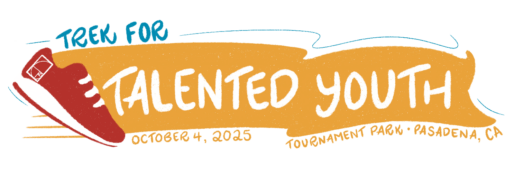by Zadra Rose Ibañez, Director of Operations
Executive skills are those cognitive abilities and habits that allow us to be organized, to plan and implement action. They are essential to being productive and to completing goals and projects. We learn these very early on, from rote (A-B-C’s and colors) helping us to strengthen our memory, to learning to play well with others in the proverbial sandbox. But what do these skills have to do with our success later in life? How do they translate to a professional environment, aka, “Why do I need to learn this?”
A quick survey of professional development experts and their websites tells us that many executive skillsets are common among the differing methodologies. This suggests that improving these functions is precisely what leads to great leadership qualities.
Understood.org1 lists 8 Key Executive Functions:
Impulse Control
Think before you act, envision the consequences of your actions before the action is taken. Stephen R. Covey, in his seminal work The 7 Habits of Highly Effective People2, suggests that we have a choice in how we react to a given situation, and that decision determines the outcome of that experience. This also plays a part in “doing what we want” vs. “doing what we need to.”
Emotional Control
Remain Calm. It helps to separate emotion from experience; learning to take constructive criticism and alter one’s trajectory is a huge growth opportunity. Being able to communicate without excessive emotion helps develop trust. It can be seen in Covey’s tenet, “Think Win-Win,” which allows us to consider a circumstance as an opportunity for all parties to be happy with the outcome, rather than a win-lose mentality.
This is also what allows us to Synergize, to work with others for a result that is stronger than if we each acted alone. This skill is of utmost importance in teamwork.
Flexible Thinking
Being flexible, adaptive, and able to modify course based on new information allows us to capitalize on changes to create the best outcome in a project. It helps to Clarify3 the project’s goals, and then modify as you go based on new information. Another area where being flexible helps one to excel is in listening. Covey recommends that we “Seek First to Understand – then to be Understood.” This enables us to get to the heart of the matter quickly, offering valuable insight for a project’s completion.
Working Memory
Practicing remembering facts, learning new subject matter, and developing mnemonic devices to assist with retention and recall are excellent ways to develop a stronger working memory. In addition, being organized and utilizing tools and methods to help you remember will make it easier to access key information.
Organization
This, in turn will help you organize your thoughts, to be able to effectively communicate an idea or to plan a project. The first step in David Allen’s “Getting Things Done” method is to Capture and then Organize information3.
Planning and Prioritizing
Franklin Covey once published a booklet titled How to Eat an Elephant. The booklet outlined steps for success starting with Covey’s “Begin with the End in Mind.” Being able to envision the end result will help construct a plan for achieving a large or long-range goal. Consider goals and break them down into smaller, bite-sized pieces. Simon Sinek’s Start with Why4 and Brian Tracy’s “The Seven Leadership Qualities of Great Leaders”5 both speak of Vision. In addition to Strategic Planning, prioritizing and thinking with the big picture in mind, beginning the process with value-based goals helps us Focus on mission-driven decisions, so that our activities will ultimately be effective and satisfying. Covey expresses this by reminding us to “Put First Things First.”
Task Initiation
Once all the pieces are in place, one must actually take action! Allen recommends that we Engage3. Covey recommends that we Be Proactive2. Sinek and Tracy state Action is the final necessary ingredient for success. Yvon Choinard, founder of Patagonia said, “There is no difference between a pessimist who says, “oh, it’s hopeless, so don’t bother doing anything,” and an optimist who says, “don’t bother doing anything, it’s going to turn out fine anyway.” Either way, nothing happens.
Self-Monitoring
Allen recommends that we Reflect on the outcome of our activity. Did what we do create the result we expected? Are there ways to be more efficient? Regular, routine check-ins allow us to monitor our progress and decide whether we have met milestones on the way to our goals. Covey also advocates for us to take care of ourselves by Sharpening the Saw, as we cannot provide or contribute if we are not healthy mentally and physically.
- Morin, Amanda. “At a Glance: 8 Key Executive Functions.” Understood.org. Web. 27 Jan. 2017.
- Covey, Stephen. ” 7 Habits of Highly Effective People.” StephenCovey.com. Web. 27 Jan. 2017.
- https://www.stephencovey.com/7habits/7habits.php
- Getting Things Done®. Web. 27 Jan. 2017.
- gettingthingsdone.com
- Sinek, Simon. “Start with Why.” StartwithWhy.com. Web. 27 Jan. 2017
- Tracy, Brian. “7 Leadership Qualities and Attributes of Great Leaders.” BrianTracy.com. 14 Oct. 2016. Web. 27 Jan. 2017.
Like this post? Sign up for our email newsletter to receive more stories, information, and resources about gifted youth straight to your inbox.


